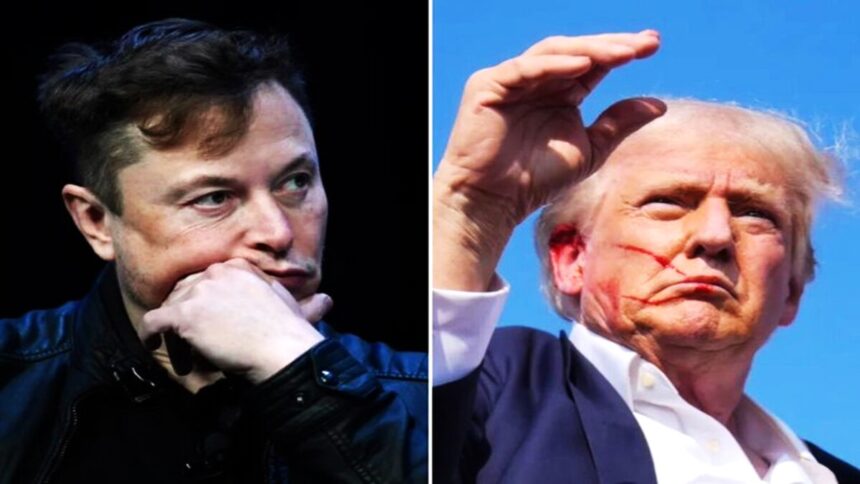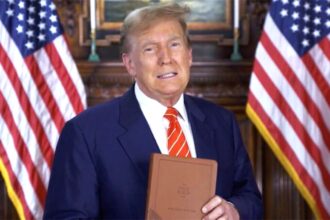Elon Musk, the CEO of Tesla, has found himself in a heated legal battle over a massive pay package that has raised eyebrows across the business world. In a recent ruling, Delaware Chancery Court Judge Kathaleen McCormick rejected Musk’s attempt to award himself a staggering $56 billion in Tesla stock options, a decision that could have profound implications on his future compensation. So, what’s next for Musk in this unprecedented legal saga, and how might he respond to this setback?
A Massive Pay Package Rejected
In a decision that has shocked many, Judge McCormick ruled against Elon Musk’s $56 billion compensation package, which he sought for his six years as Tesla’s CEO. This package was designed to give Musk a series of stock options based on Tesla’s performance, but the judge sided with shareholders who argued that the deal was excessively large and not in the company’s best interest.
This ruling marks the second time Musk’s compensation package has been rejected by McCormick. The first instance came in January, when the judge dismissed Musk’s initial attempt to secure such a high-value payout. The rejection has sparked heated discussions about executive compensation and whether the amounts paid to top leaders like Musk are justified.
#ElonMusk's record $56 bn pay deal rejected for second time.
Follow for more: https://t.co/1uRQd86K5e pic.twitter.com/5kW1RsApXV
— editorji (@editorji) December 3, 2024Musk’s Reaction and Legal Strategies
The legal battle over Musk’s $56 billion package is far from over. According to Greg Germain, a corporate law professor at Syracuse University, Musk could move the legal challenge to Texas in an effort to restore the compensation deal. Tesla, which was originally incorporated in Delaware, relocated to Texas after losing the initial legal battle in January. Germain believes that Musk might attempt to seek a more favorable ruling from Texas courts, which may be more corporate-friendly compared to Delaware’s more shareholder-centric legal environment.
“The corporation has now moved to Texas,” Germain noted, suggesting that Musk’s next move might involve pushing for a new share package that includes elements of the original $56 billion deal. “Musk might try to get a different opinion from the Texas courts, but I doubt they would be successful,” Germain added. The shift to Texas could, in theory, give Musk another shot at securing a pay package that aligns with his vision, but the legal hurdles are still significant.
Additionally, Musk has the option to appeal the Delaware court’s decision to a higher court. Musk’s legal team might argue that the decision to deny the package should be reconsidered, especially since the package had been ratified by Tesla’s board of directors and the majority of Tesla’s shareholders. This could create a complex situation where Musk’s legal team tries to demonstrate that the ratification process, which occurred after McCormick’s initial rejection, should be enough to validate the deal.
Executive Pay: A Controversial Topic
The controversy surrounding Musk’s $56 billion compensation package goes beyond the legal aspects. The size of executive pay packages in the U.S. has long been a topic of debate, and Musk’s pay demands have only intensified the conversation. Greg Germain pointed out that Musk’s request for a $56 billion stock grant is “extraordinary,” even by the standards of high-level corporate compensation. In fact, Musk’s proposed pay package is one of the largest in corporate history, raising serious questions about fairness, shareholder interests, and the broader culture of executive compensation.
Eric Chaffee, a business law professor at Case Western Reserve University, echoed these concerns, noting that while executive pay packages of this magnitude are technically legal, they can be seen as excessive. “Superstar executive compensation is legally permissible, but there are limits,” Chaffee explained. “Elon Musk’s compensation is one example of this.” Chaffee’s comments underscore the growing tension between corporate leaders, shareholders, and the public when it comes to eye-popping pay deals.
Despite the size of his compensation package, Musk’s defenders argue that his leadership has been instrumental in Tesla’s success. Tesla has grown rapidly under Musk’s guidance, becoming one of the most valuable companies in the world. Supporters also note that the package was performance-based, meaning that Musk would only receive the payout if Tesla achieved certain milestones. However, critics argue that the size of the potential reward was disproportionate, especially considering the vast amount of wealth Musk has already amassed.
What’s Next for Musk?
As the legal battle continues, several potential outcomes are on the table. Musk could appeal the Delaware court’s decision to a higher court, hoping that the appellate judges will side with him. If that doesn’t succeed, Musk might work with Tesla to create a new pay package that incorporates elements of the original $56 billion deal but is structured in a way that would be more palatable to the courts and shareholders.
Tesla might also be inclined to offer Musk a new deal that aligns more closely with the company’s long-term goals, and that could involve revising the compensation structure to avoid further legal hurdles. However, even with a new deal, it remains to be seen how the courts will react. If the Texas courts become involved, as some legal experts predict, there could be a different outcome, but the legal landscape is uncertain.
The Bigger Picture: The Future of Executive Compensation
Musk’s battle over his $56 billion pay package is more than just a legal dispute between a billionaire CEO and a court. It highlights the broader issue of how much is too much when it comes to executive compensation. The controversy surrounding Musk’s pay deal has sparked important discussions about the ethics of paying top executives such vast sums, especially when many workers struggle to make ends meet.
In the coming months, the legal battle over Musk’s compensation will continue to unfold, and it may set important precedents for future cases involving executive pay. While Musk’s legal team may find ways to secure a more favorable ruling, the broader question of how to balance fair compensation with corporate responsibility remains a key issue in today’s business world.
Ultimately, Musk’s saga serves as a reminder of the complex and sometimes contentious nature of executive compensation, and how much the outcome of these cases can influence not just individual careers, but the wider business landscape. Whether he will emerge victorious in securing his $56 billion pay package or face a more modest deal, one thing is certain: the stakes in this case are incredibly high.
Read More : Trump’s Struggle with Hegseth’s Scandal: Weighing Strong Alternatives for Defense Secretary





